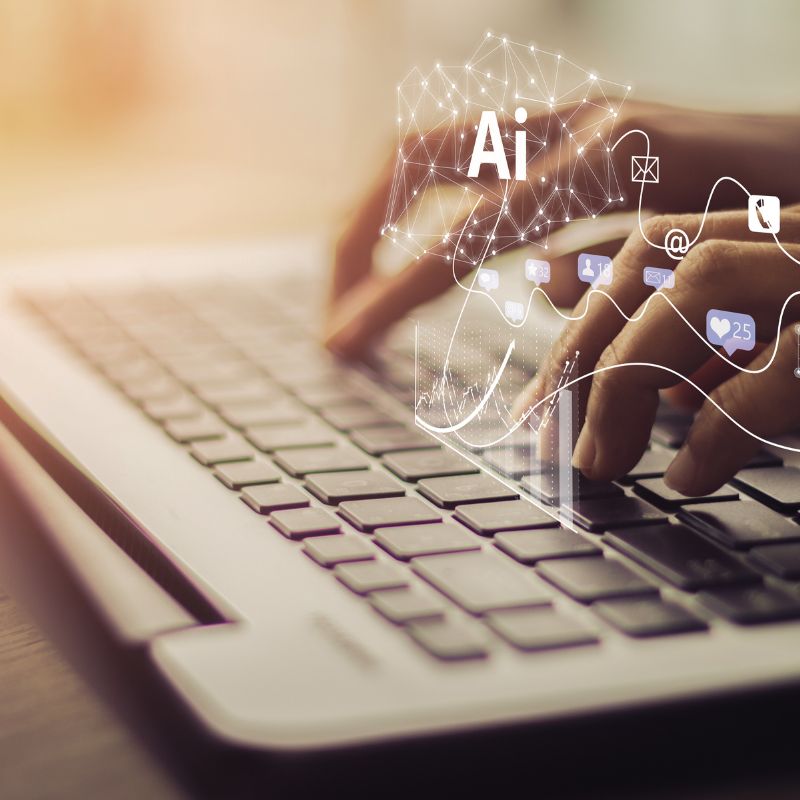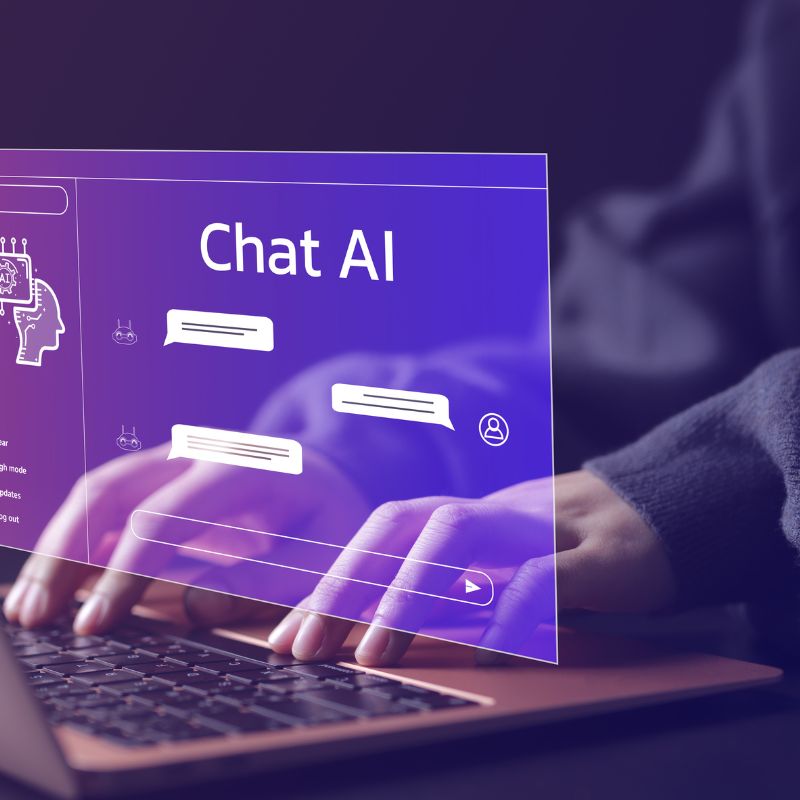Our expert

Bertrand Milas
HR BPO and Outsourcing Director
For two years now, generative AI has been making its way into the mainstream of business. To what extent have these new tools already begun to transform the daily lives of HR departments?
We talk to Bertrand Milas, HR BPO and Outsourcing Director.
Notre expert

Bertrand Milas
Directeur Externalisation et BPO RH
How have HR departments tackled the generative AI revolution?
Bertrand Milas. The changes have been very rapid. In at least two major areas – recruitment and training – HR departments are already demonstrating a high degree of maturity in their use of AI-based tools.
AI is of course a productivity issue for the HR function, and a revolution for everything to do with administrative management. Today, much of the work involved in selecting CVs, generating employment or subcontracting contracts, creating job descriptions and managing employee files can be automated.
The same applies to training: artificial intelligence systems are highly effective in identifying training needs and making the right proposal in a targeted way, based on a whole range of parameters (strategic priorities, training courses taken in the past, etc.).
But beware! AI cannot be limited to productivity gains. It’s also, and above all, an opportunity to offer new services to employees with a view to retaining talent and building the employer brand. I’m thinking, for example, of HR Chatbots, which offer extra responsiveness and a new experience for employees who ask questions that are essential to them.
We’re also seeing the emergence of other applications: today, instead of applying job by job, for example, there are systems that allow you to enter your CV and then pull up all the jobs that match your profile. In short, the applications are vast…
HR AI applications are vast. But don’t a number of obstacles – and even limitations – persist?
Bertrand Milas. As things stand, yes, of course. I see a first difficulty: behind the great concept of AI, we have tools that depend greatly on the quality of the data that will feed them. Under these conditions, deploying AI in an organization that still has work to do to structure its databases and put its processes in order is likely to be a source of frustration and/or disappointment. This explains why AI is leading to a certain degree of operational standardization in companies, and favoring large HR ERPs.
There is a second limitation, intrinsic to this family of technologies: AI comes up against the problem of managing everything that is “non-normed”. I’m thinking, for example, of diversity issues in companies. A few years ago, there was a lot of talk about CV-free recruitment… Well, it turns out that AI doesn’t know any different! AI is fundamentally conservative, and by definition doesn’t bring many convictions to a profession that absolutely must have them.
Another problem is that AI has a short memory, and data is not always available beyond the last twenty years or so… When you consider that retired HR managers from the 70s and 80s have sometimes had to be called back in order to understand the inflation spike of the last two years, you have to admit that AI doesn’t necessarily have all the answers!

And what HR uses do you see emerging in the future?
Bertrand Milas. What we’re already seeing is a revolution in predictive human resources management. With AI and Big Data, new strategic workforce planning tools will become widespread, enabling companies to manage their resources and costs over time. Today, just by using the data freely available on LinkedIn, it is possible to build new models for compensation policies.
We’re only at the very beginning, but one thing is certain: AI will change the typical profiles within HR departments. We’ll have fewer administrative profiles, but at the same time, we’ll need more of a critical eye. It’s not a question of eliminating tasks, but of profoundly transforming HR professions. Artificial intelligence is only intelligent up to a point: it’s up to HR to provide the intelligence needed to adjust the organization, its culture and its operational processes with AI tools.
In other words, AI isn’t just a matter for the IT department – far from it! HR departments must evolve to become the true co-pilots of the machine.
AI is only intelligent up to a point: it’s up to HR to provide the intelligence needed to adjust the organization, its culture and its operational processes.
